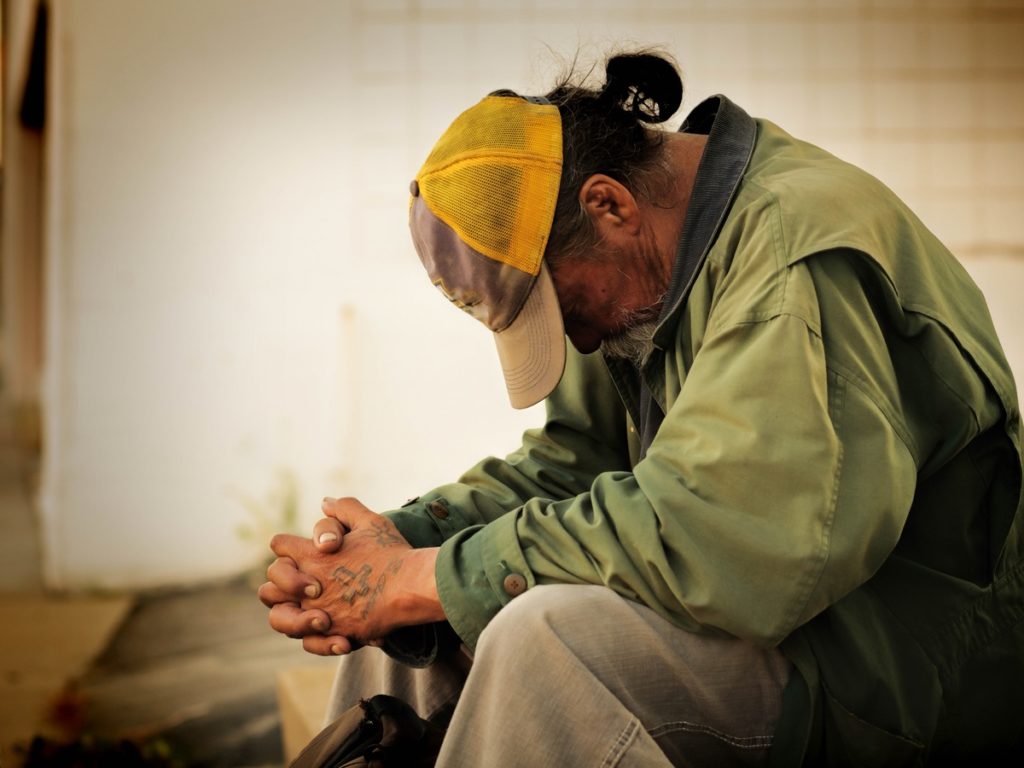The government measures to limit the spread of the coronavirus (Covid-19) involve a great deal of staying at home for office workers, schoolchildren, students and bar patrons.
But what if you have no home to stay in? Organisations working with the homeless have sounded the alarm that the problem has been overlooked.
While restaurants remain shuttered until the beginning of April, the same rule applies to the Restos du Cœur – restaurants in mainly the French-speaking part of the country that cater to the homeless and those on low incomes.
Their solution is the same as that for some classic restaurants: take-away.
That’s already what’s happening at the Restos in Charleroi, Quiévrain, Verviers, Liège and Namur, the RTBF reports.
“Some of our services are closed, but we will make every effort to continue to offer a maximum of aid to those in need,” said Marie Tombu, a member of the Restos du Cœur federation.
People using the service are advised to come alone or with one other person, so as to avoid queues.
The measures adopted by the various authorities in the last few days are not at all suited to the needs of the most vulnerable in society, including the homeless, according to the charity Doctors of the World.
The organisation works with not only the homeless but those on low incomes and those who are for one reason or another excluded from health care and other care services.
“We consider that the current measures and the recommendations issued to not take account of these groups,” said Alexis Andries, director of programmes for Belgium.
“Almost 80% of those who visit Doctors of the World are homeless or living in unfit conditions. The recommendation to stay at home when symptoms appear is for them simply not an option.”
The charity is now in discussions with political authorities to figure out what measures are necessary for these groups of people, such as a quarantine space and access to proper health care.
“The argument we have been advancing for years for access to care – including preventive care – that is fair and universal, regardless of nationality, civil status or earnings, is now more than ever an urgent matter,” Andries said.
Brussels health minister Alain Maron (Ecolo) yesterday told the region’s parliament that specific measures are being considered for centres used by the homeless and migrants. The Red Cross is to create additional reception capacity in an office building in Rue de Trêves in the European quarter should any infections show up in the existing centres.
Meanwhile one of the daytime centres for the homeless in the city is to close.
Le Chauffoir, housed in the basement of the St-Susanna church in Schaerbeek, has to close down because it has no sufficient windows and ventilation system to cope with the presence of possible sources of infection, according to Sophie Querton, president of the commune’s social aid agency.
The centre, which offers a place for the homeless to gather in the daytime when hostels are normally closed, will itself close down on 16 March, and while the current restrictions are planned to be relaxed from 3 April, Le Chauffoir will not re-open in its current form, as the season will have ended.
The organisers are currently looking for a new venue to re-open in the new season later in the year.
Alan Hope
The Brussels Times

